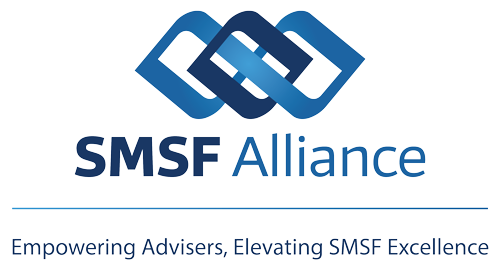This budget has significant superannuation ramifications that will be canvassed over the coming days, weeks and months. It represents numerous planning opportunities. These will not be discussed here. What follows is a summary of the budget super measures taken, largely verbatim, from the budget papers.
Utilising Unused Concessional Contribution Caps in Later Years
From 1 July 2017, the Government will allow individuals to make additional concessional contributions where they have not reached their concessional contributions cap in previous years. Access to these unused cap amounts will be limited to those individuals with a superannuation balance less than $500,000. Amounts are carried forward on a rolling basis for a period of five consecutive years, and only unused amounts accrued from 1 July 2017 can be carried forward.
Removing the Work Test
From 1 July 2017, the Government will improve the flexibility of the superannuation system by removing the current restrictions on people aged 65 to 74 from making superannuation contributions for their retirement. People under the age of 75 will no longer have to satisfy a work test and will be able to receive contributions from their spouse.
Low Income Spouse Tax Offset
From 1 July 2017, the Government will increase access to the low income spouse superannuation tax offset by raising the income threshold for the low income spouse to $37,000 from $10,800. The low income spouse tax offset provides up to $540 per annum for the contributing spouse and builds on the Government’s co-contribution and superannuation splitting policies to boost retirement savings, particularly of women.
Cap on New & Existing Pension Balances
From 1 July 2017, the Government will introduce a $1.6 million transfer balance cap on the total amount of accumulated superannuation an individual can transfer into the retirement phase. Subsequent earnings on these balances will not be restricted. This will limit the extent to which the tax-free benefits of retirement phase accounts can be used by high wealth individuals.
Where an individual accumulates amounts in excess of $1.6 million, they will be able to maintain this excess amount in an accumulation phase account (where earnings will be taxed at the concessional rate of 15 per cent). Members already in the retirement phase with balances above $1.6 million will be required to reduce their retirement balance to $1.6 million by 1 July 2017. Excess balances for these members may be converted to superannuation accumulation phase accounts.
A tax on amounts that are transferred in excess of the $1.6 million cap (including earnings on these excess transferred amounts) will be applied, similar to the tax treatment that applies to excess non-concessional contributions.
The amount of cap space remaining for a member seeking to make more than one transfer into a retirement phase account will be determined by apportionment.
Lifetime Non Concessional Contribution Cap
The Government will introduce a $500,000 lifetime non-concessional contributions cap to improve the sustainability of the superannuation system. To ensure maximum effectiveness the lifetime cap will take into account all non-concessional contributions made on or after 1 July 2007, from which time the Australian Taxation Office has reliable contributions records, and will commence at 7.30 pm (AEST) on 3 May 2016. Contributions made before commencement cannot result in an excess. However, excess contributions made after commencement will need to be removed or subject to penalty tax. The cap will be indexed to average weekly ordinary time earnings and is estimated to have a gain to revenue of $550.0 million over the forward estimates period.
The lifetime non-concessional cap will replace the existing annual caps which allow annual non-concessional contributions of up to $180,000 per year (or $540,000 every three years for individuals aged under 65).
This measure will also provide Australians with flexibility around when they choose to contribute to their superannuation and will be available to all Australians up to age 74.
Low Income Superannuation Tax Offset
From 1 July 2017, the Government will introduce a Low Income Superannuation Tax Offset (LISTO) to reduce tax on superannuation contributions for low income earners. The LISTO will provide a non-refundable tax offset to superannuation funds, based on the tax paid on concessional contributions made on behalf of low income earners, up to a cap of $500. Provision will be made to ensure the measure can be implemented to achieve the outcomes as intended. The LISTO will apply to members with adjusted taxable income up to $37,000 that have had a concessional contribution made on their behalf.
This will effectively avoid the situation in which low income earners would pay more tax on savings placed into superannuation than on income earned outside of superannuation.
Division 293 Threshold & Cap on Concessional Contributions Reduced
From 1 July 2017, the Government will lower the Division 293 threshold (the point at which high income earners pay addition contributions tax) from $300,000 to $250,000. The Government will also reduce the annual cap on concessional superannuation contributions to $25,000 (currently $30,000 under age 50; $35,000 for ages 50 and over).
Anti-Detriment Payments Abolished
From 1 July 2017, the Government will improve the integrity and fairness of the system by removing the outdated anti-detriment provision.
Transition to Retirement Incomes Lose Fund Tax Exemption and Pensions Cannot be Taxed as Lump Sums
The Government will improve integrity in the superannuation system by removing the tax exemption on earnings of assets supporting Transition to Retirement Income Streams from 1 July 2017 (income streams of individuals over preservation age but not retired). It will also remove a rule that allows individuals to treat certain superannuation income stream payments as lump sums for tax purposes.
Work Test Removed to Age 75 & Personal Concessional Contributions for Employees
From 1 July 2017, the Government will improve flexibility and choice in superannuation by allowing all individuals up to age 75 to claim an income tax deduction for personal superannuation contributions. This effectively allows all individuals, regardless of their employment circumstances, to make concessional superannuation contributions up to the concessional cap. Individuals who are partially self-employed and partially wage and salary earners, and individuals whose employers do not offer salary sacrifice arrangements will benefit from these changed arrangements.


